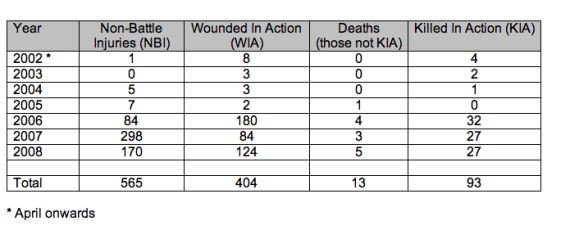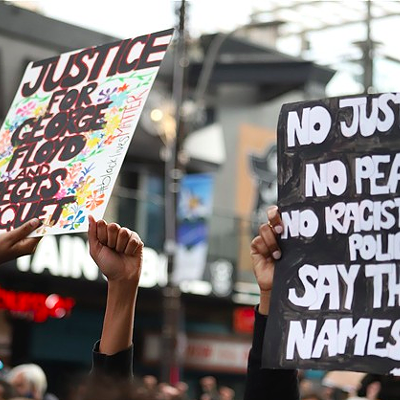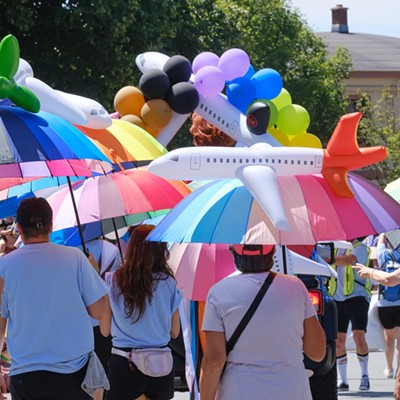The information was provided by the military to Coast contributing editor Bruce Wark. "As you know," writes Wark, "the mainstream media rarely report on the number of wounded in Afghanistan. The Canadian military now seems to have adopted a new policy of releasing the figures if you ask for them. I asked in December and received figures up to the end of 2007. (The military won't release current year figures. They claim that's for security reasons.) So, earlier this month I asked for updated figures to the end of 2008. They show that 982 people have been injured, wounded in action and killed (but not in action) since April 2002.
"I haven't asked the military for any further breakdown, such as regional figures for injured and wounded, so I'm not sure if they release them or not." The military gives the following definitions for the categories:
The Wounded in Action (WIA) figure includes injuries of military personnel directly attributable to combat action that required medical/dental intervention. Specifically, it includes:
• injuries from IEDs, mines, rocket attacks, and direct combat with an enemy force or terrorist element,
• personnel injured in friendly fire incidents related to combat action
• acute psychological trauma directly attributable to combat action that required medical intervention.The Non-Battle Injuries (NBI) figure includes those injured as a result of traffic accidents, the accidental discharge of a weapon and any other accidental injuries not related to combat. It also includes those members reported ill, repatriated for compassionate reasons and repatriated for medical reasons. NBI are reported even though they are returned to duty (RTD) after being assessed by a medical officer (MO).














